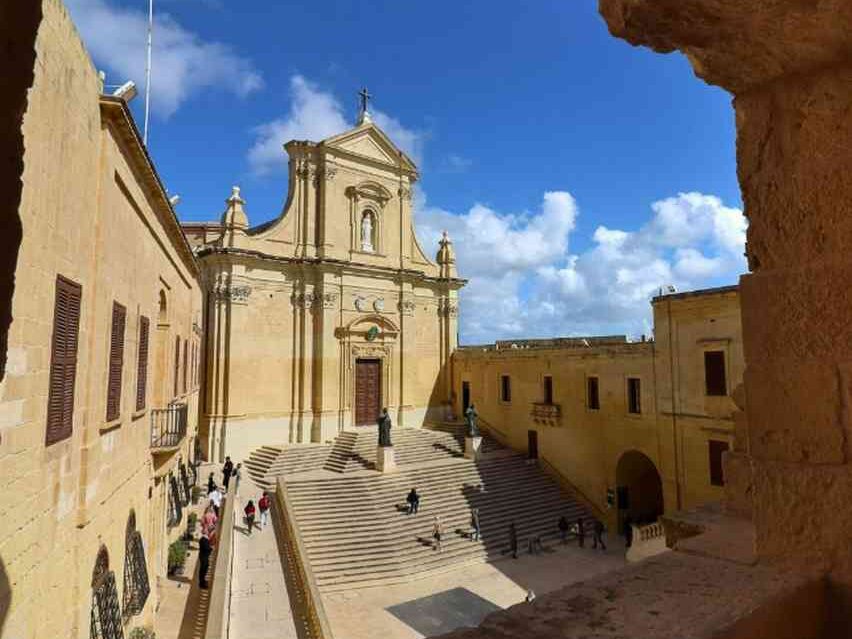Malta Permanent Residence Through Work Permit (2025 Guide)
Malta offers non-EU nationals a way to secure permanent or long-term residence through work permits. This guide provides the details about Malta’s permanent residence via work permits, from eligibility to application steps.

Permanent Residence vs Long-Term Residence
Achieving permanent residence in Malta is a goal for many non-EU nationals seeking stability and long-term benefits. While the term “permanent residence” is often used informally to describe long-term residency in Malta, the official term for the residency status obtained through a work permit is “long-term residence.”
Long-term residence is achieved after five years of continuous legal residence, typically through maintaining a valid work permit. Permanent residence, on the other hand, typically refers to investment-based programs like the Malta Permanent Residence Programme (MPRP), which requires financial investment rather than employment.
If you are considering the Malta Permanent Residency Program (MPRP), we’ll take care of the paperwork, checks, and submission for you.

Types of Work Permits
There are different types of work permits based on your qualifications and professional status:
- Single Permit: The most common permit for non-EU nationals, it covers residence and employment. The Single Permit is tied to the job and employer listed in the application.
- EU Blue Card: Designed for highly skilled professionals with specific qualifications, such as a higher education degree and a salary above a set threshold. The EU Blue Card allows mobility within the EU and offers benefits like family reunification.
Find all the details for Blue Card holders applying for Malta Permanent Residence in our guide. - Self-Employment Permit: For individuals starting a business or freelancing in Malta. Applicants must prove sufficient financial resources, a viable business plan, and expertise in their field.

Benefits of Long-Term Residence
Long-term residence in Malta has many valuable benefits:
- Work and Study Rights: You can work and study in Malta without needing extra permits. This provides more freedom for your career and education.
- Social Benefits and Healthcare: You gain access to Malta’s public healthcare and welfare programs.
- Schengen Zone Travel: Your status allows visa-free travel within the Schengen Zone, making European travel easier.
If long-term residence sounds good, the benefits of Malta’s Permanent Residence Programme provide an even greater range of opportunities—learn more in our full guide.

How to Get Long-Term Residence Through a Work Permit
Getting long-term residence through a work permit involves three main stages:
1. Securing a Work Permit in Malta
Getting a work permit is the first step toward long-term residence in Malta. This allows non-EU nationals to live and work legally in the country.
Here’s what you need to know about the process and requirements for securing a work permit in Malta.
Eligibility Requirements
To apply for a work permit, you must meet these essential conditions:
- Job Offer: A confirmed employment offer from a Maltese employer is mandatory.
- Relevant Qualifications: Applicants must have the qualifications or experience required for their job.
- Health Insurance: Comprehensive health insurance coverage valid in Malta is needed.
Find out how Malta’s Permanent Residence healthcare system works with insurance requirements in our guide. - Clean Criminal Record: A police conduct certificate is required to demonstrate good character.
Application Process for the Single Permit
Follow these steps to secure a work permit in Malta:
- Secure a Job Offer: Ensure you have a confirmed job offer from a Maltese employer. The employer will typically initiate the application process for the Single Permit on your behalf.
- Provide Necessary Documents: Required documents include:
- A valid employment contract provided by your employer
. - Proof of your qualifications and professional skills (e.g., degree certificates, training certifications).
- Evidence of comprehensive health insurance covering your stay in Malta.
- A valid employment contract provided by your employer
- Employer Submits the Application: Your employer will submit the Single Permit application to Identity Malta.
- Await Processing: The processing of the Single Permit application usually takes 2-3 months. During this time, identity Malta will verify your qualifications and documentation.
2. Meeting the Requirements for Long-Term Residence
After legally residing in Malta for five continuous years, you may apply for long-term residence. Key criteria include:
- Continuous Residence: You must have lived in Malta continuously for five years. Short absences are allowed, but they must not exceed six consecutive months or a total of 10 months over the five-year period.
- Economic Stability: You need to demonstrate sufficient and stable financial resources to support yourself and any dependents without relying on social assistance.
- Accommodation: You must provide proof of suitable housing that meets Malta Housing Authority standards.
- Integration Measures: You may need to prove integration into Maltese society, which includes language proficiency and understanding of local culture and laws.
3. Applying for Long-Term Residence
Once all requirements are met, applicants can begin applying for long-term residence in Malta. Here are the steps to apply:
- Verify Your Eligibility: Ensure that you meet the criteria for long-term residence:
- You have legally resided in Malta for at least five continuous years.
- You have maintained financial stability, suitable housing, and integration into Maltese society.
- Gather Necessary Documents: Prepare the following required documents:
- Proof of continuous residence (e.g., rental agreements, utility bills, or residence permits).
- Evidence of financial stability, such as bank statements or salary slips.
- Documentation of suitable housing that meets Maltese Housing Authority standards.
- Certificates showing compliance with integration measures, including language proficiency or cultural knowledge.
- Submit Your Application: File your application with Identity Malta. Ensure you complete the application form accurately, attach all required supporting documents, and pay any applicable application fees.
- Wait for Processing: Allow time for Identity Malta to review your application. During this period, the authorities will verify your documents and eligibility. You may also be contacted for additional information or clarification.
Processing times vary but typically take several weeks to a few months. - Receive Your Residence Permit: If your application is approved, collect your long-term residence permit from Identity Malta. The permit is valid for five years and can be renewed as long as you meet the criteria.

FAQS
Can I Include My Family Members in My Residence Application?
Yes, your family members can be included in your application for long-term residence. After you have lived in Malta for five years, your dependents may also become eligible for an autonomous residence permit, ensuring their individual rights are safeguarded.
How Do I Maintain My Long-Term Residence Status?
To retain your long-term residence status, you must comply with Maltese laws and regulations. This includes renewing your residence permit before it expires and adhering to the conditions set by Identity Malta. Failure to do so could result in losing your residence rights.
Ready to apply for Malta permanent residency? We’re here to simplify the process and help you achieve your residency goals. Reach out to us today through our contact form to make it happen!






